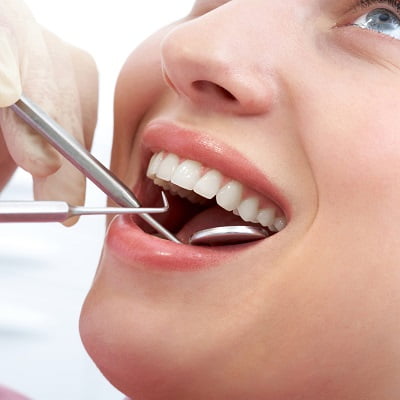
What are dental fillings?
Dental fillings are materials or mixtures such as glass, plastic, metal, or other substances used to restore or repair teeth. One of the most common uses of fillings is to fill the area that has been decayed due to decay. Additionally, fillings can be used to restore worn-out teeth by misuse or that have cracks or breaks. This may happen due to nail biting or tooth-grinding. Before booking your appointment for dental you might want to know certain advantages or tips about the procedure. This blog will explain taking Advantage Of Teeth Filling – Read These 7 Tips.
What Types of Filling Materials Are Available?
Dental filling materials come in a variety of forms today. Gold, porcelain, silver amalgam, tooth-colored plastic, composite resin fillings, silver amalgam mixed with tin, zinc, and copper, and silver amalgam can all be used to restore teeth. As another example, glass ionomer is a substance that contains glass particles. Similar to how composite resin fillings are used, this material is used in similar ways.
The best type of filling for you will depend on the location and severity of the decay, the cost of the material for the filling, your insurance coverage, and the advice of your dentist.
Dental filling materials include:
- Gold
- Porcelain
- Silver amalgam tooth-colored, plastic, and glass materials are called composite resin fillings.
The type of filling that will best suit your needs is decided upon by the location and degree of the decay, the cost of the filling material, your insurance coverage, and the dentist’s recommendation.
7 Tips for Teeth Filling:
How Soon Can I Eat and Drink After a Filling?
People frequently inquire about their ability to resume eating and drinking after a filling. If your San Diego dentist placed a tooth-colored filling, you can leave the office right away and resume your normal activities. You are free to conduct your business as usual and, if you like, pick up a snack en route home. However, due to the anesthetic, you might still feel a little numb.
Ways to care for a dental filling:
Cavity symptoms like toothaches and sensitivity are alleviated by getting a dental filling. Following the placement of fillings, patients should do the following:
Wait until the anesthetic wears off.
The patient will receive an anesthetic injection from the dentist, as we already mentioned earlier. Even hours after the procedure, the medication may still be present. It takes away the patient’s sense of touch in their mouth, which increases the risk of injuries if they attempt to eat before their sense of touch returns.
Avoid Putting Pressure on the Tooth for a Day:
Patients should try to avoid chewing directly on their newly repaired teeth. It could place an undue strain on a filling that has not yet fully hardened.
Take Care of Oral Hygiene:
There is no special maintenance needed for fillings. To maximize the effectiveness of this treatment, simply brush and floss your teeth. Patients are advised to brush their teeth at least twice a day. Since bacteria cause more damage while a person is sleeping, brushing before bed is especially important. This is brought on by the reduced salivation that takes place while you sleep. Saliva cleans teeth naturally by removing bacteria and the acids they produce. Brushing just before bed significantly lessens the damage created at night.
Fluoride-containing mouthwash should be used by those who have a history of developing cavities. Fluoride aids in the mineralization of tooth enamel, which prevents tooth decay.
Do Not Suck on Your Teeth:
Some people frequently suck on their teeth, which is bad for dental fillings. It may eventually cause the stuffing to become loose or even fall out. If the patient waits, the cavity may grow larger and require more filling.
Be Gentle:
After having dental fillings placed, it is generally advised to be gentle. The procedure may leave the tooth painful and sensitive, and it’s possible that it will also affect the teeth nearby. To ensure that it heals properly, patients should refrain from touching the tooth or surrounding area for about a day.
Avoid Eating Hard and Sticky Items.
Eating right away after a dental filling procedure can be challenging. The possibility of sensitivity or soreness is entirely normal. To prevent any additional discomfort, general dentists advise refraining from eating anything sticky or hard right after the procedure. Foods like hard nuts, jerky, tough meats, candies, and caramels could harm a freshly filled tooth. After the procedure, it is best to stick to soft foods like eggs, yogurt, pudding, or smoothies for about a day.
Book Your Consultation:
Now you can book your consultation with us by calling us directly or filling out the form given below. We at SKN Cosmetics will be delighted to serve you.







Book your Appointment